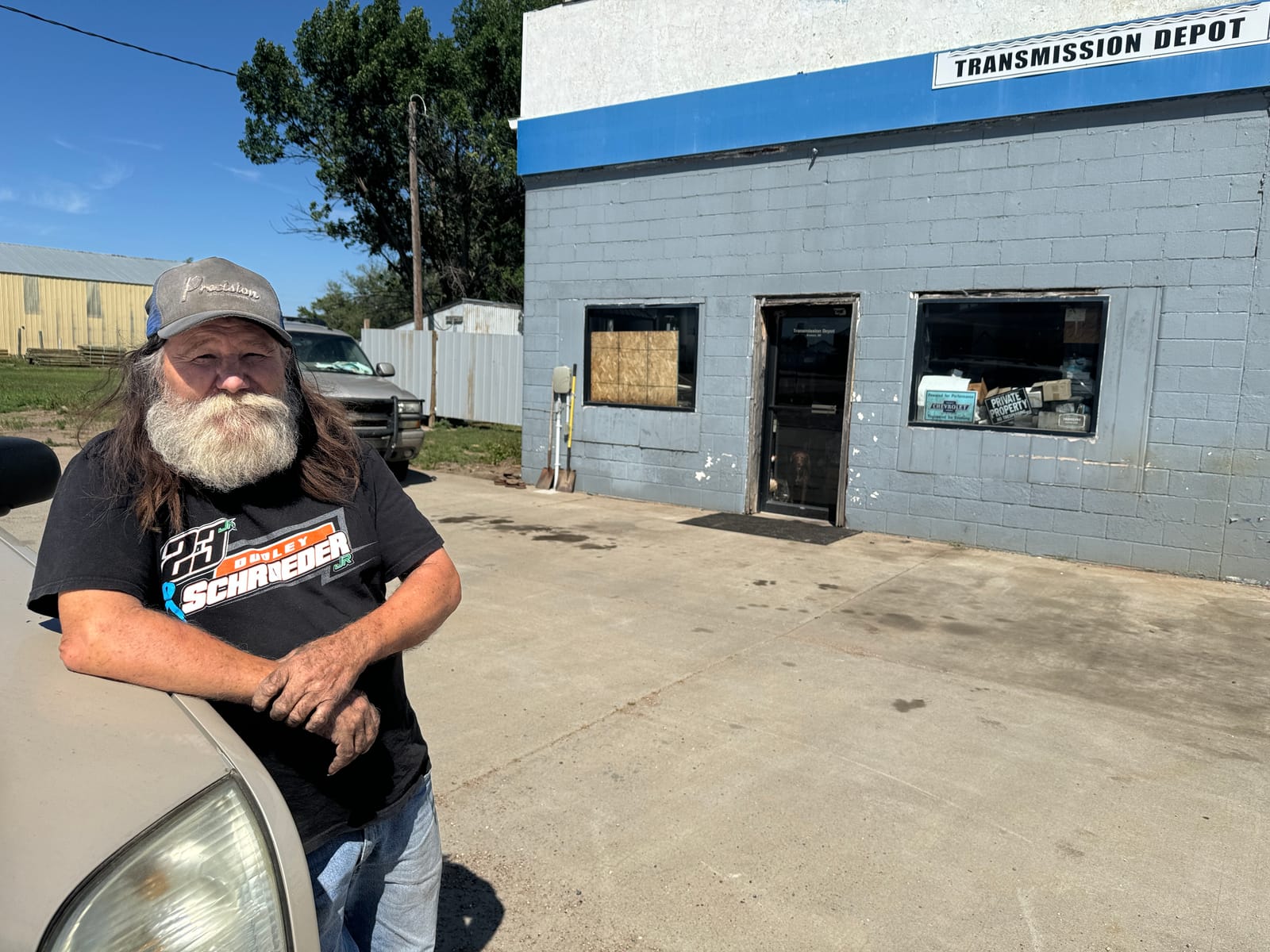ARMOUR, S.D. – Businessman Dudley Schroeder was convicted of a crime and spent two days in jail. The infraction? His downtown auto shop was declared a nuisance property and he didn't clean it up as ordered by a judge.
Schroeder's transmission repair service is located on U.S. 281 on the southern end of this small town 45 miles southwest of Mitchell. City leaders said they had tried for many years and attempted far less invasive methods to get him to clean it up before resorting to legal action.
Unless Schroeder, 65, removes the vehicles, old transmissions and other debris that have accumulated in the front of his business and on the 1.5 acres behind the building, he will spend 28 more days in jail due to his October 2022 public nuisance conviction. The city also filed a civil lawsuit in May that could require the property to be forcibly cleaned up and Schroeder assessed for the cost and court fees.
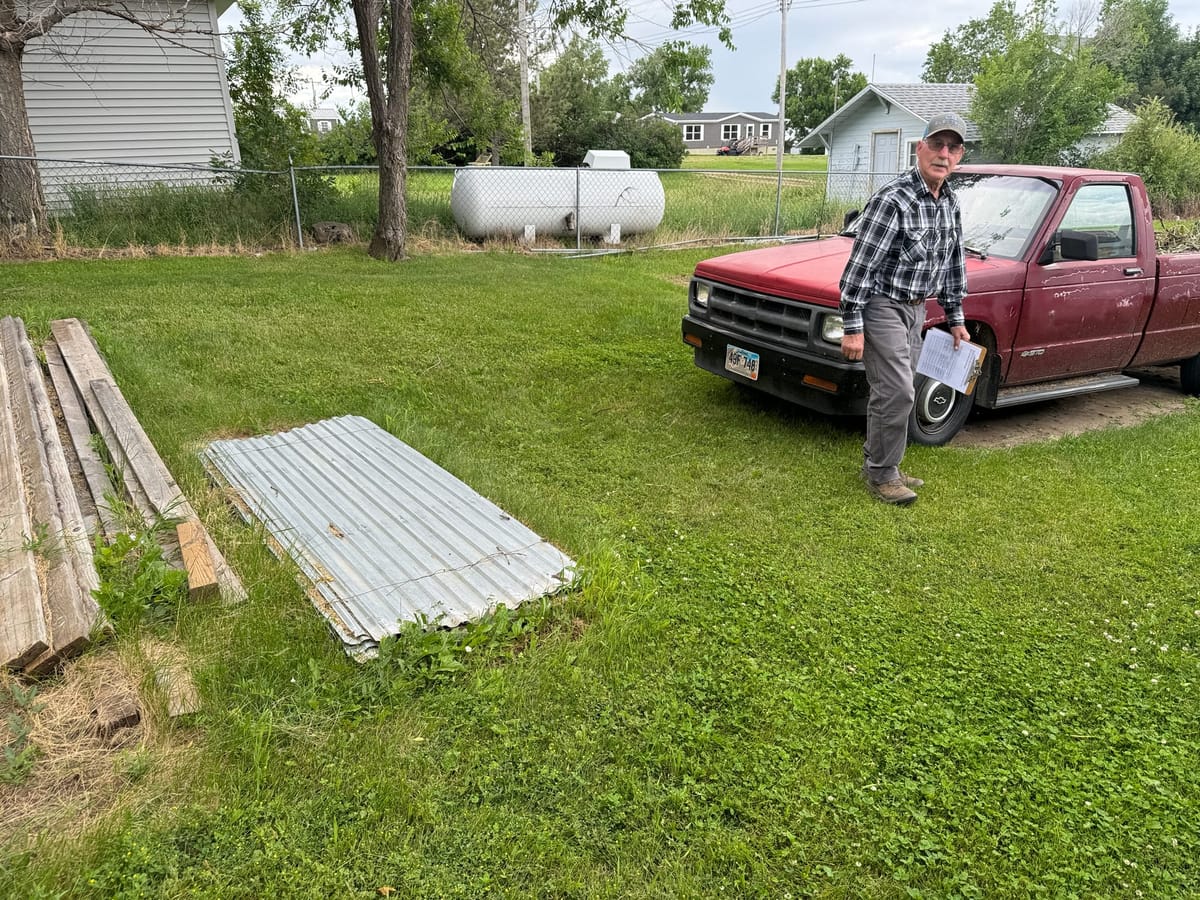
"It's been a nightmare," Schroeder told News Watch. "I'm not trying to buck the system, but I still don't know why I was put in jail. When they took me down there, nobody at the jail even knew what I was there for."
The ongoing legal cases in Armour are just a small sample of how property code violations and enforcement remain a major point of contention in many small towns and cities across South Dakota. The disputes often pit property owners seeking to assert their individual rights against municipal officials trying to spruce up struggling communities in an attempt to attract new residents and commerce.
Advocates for stricter code enforcement said poorly kept properties located within municipal boundaries can draw rodents, reduce neighboring property values and lead to lower community standards that allow others to let their properties deteriorate.
But as News Watch reported in July, code enforcement crackdowns can go awry in some communities, such as in Faith, where residents became so angry that the city council rescinded a new, stricter code enforcement plan.

Schroeder acknowledges that his property had been unkempt for quite some time before the legal consequences began, and he said he has tried over the past couple years to comply with city directives. But it has been challenging, he said, as he has tried to maintain a viable business while battling health conditions that include prostate cancer, meningitis and long-COVID, which he said he contracted while in jail.
Schroeder said his illnesses have sapped his strength and left him with more than $250,000 in medical debt. The code enforcement cases have cost him more than $20,000 in legal fees, and he said some former clients no longer want to do business with him.
'An extreme eyesore for years'
However, the city attorney for Armour said a county judge felt he had no choice other than to throw Schroeder in jail because all other legal options were exhausted.
Attorney Mike Fink, who serves as prosecutor in the criminal and civil cases against Schroeder, said Schroeder was given multiple opportunities to clean up his property long before being charged and well after being convicted.
"It was an extreme eyesore for many years, and it's only after all other efforts have proven fruitless that I got involved," Fink said.
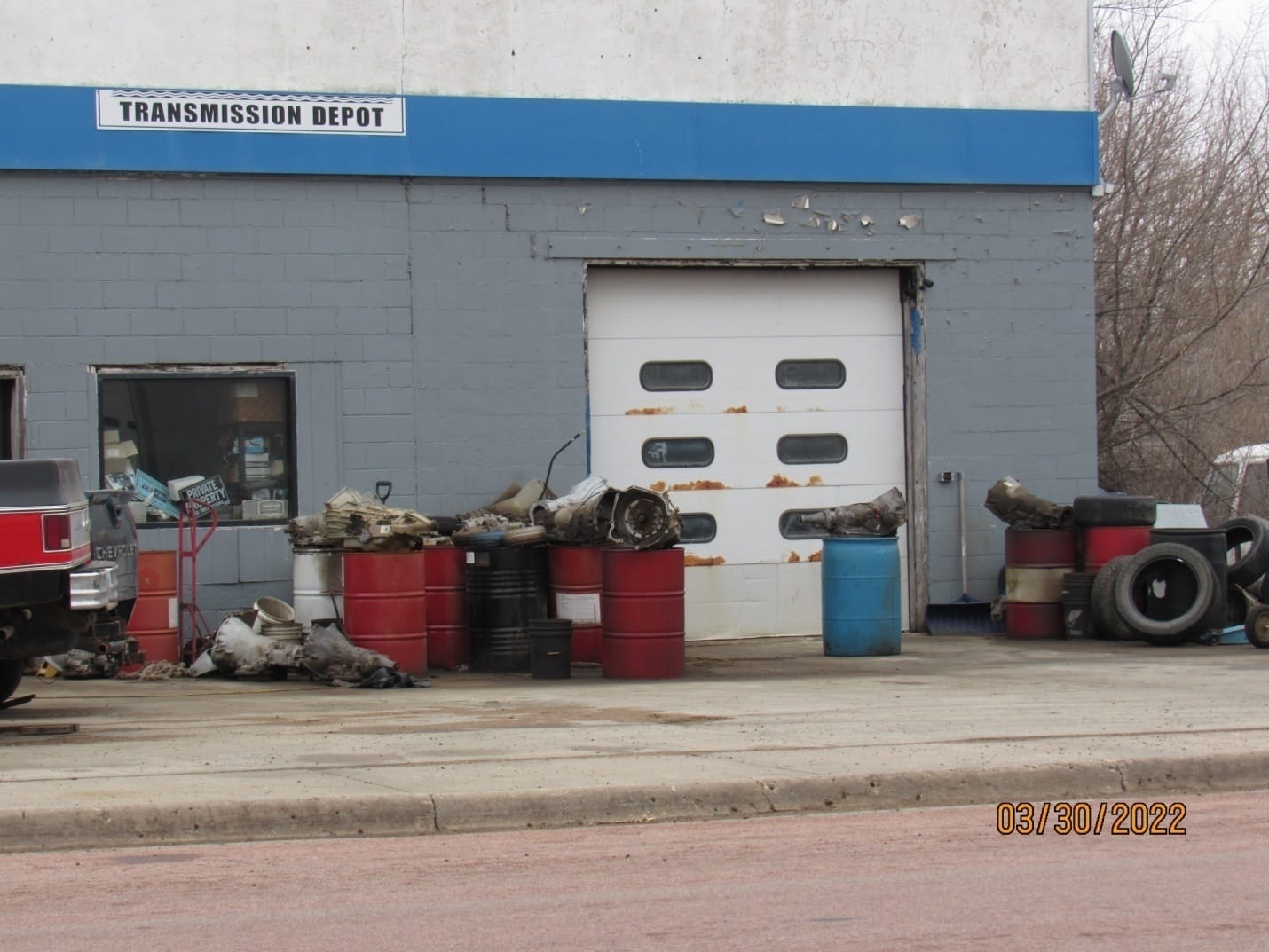
Schroeder pleaded guilty to the misdemeanor charge in August 2022 but wasn't jailed until November 2023, a time frame during which several court hearings were held and multiple extensions were allowed to give Schroeder time to comply, according to court records.
Armour city ordinances passed in 2010 prohibit nuisances and refer to South Dakota Statute 9-19-3 that allows for fines of up to $500 or imprisonment up to 30 days for violating a municipal ordinances that are considered Class 2 misdemeanors.
Fink said it is a "very rare occasion" in which someone convicted of a nuisance property charge ends up in jail because most offenders get their properties cleaned up once they realize incarceration could result from inaction.
"The judge basically put him on probation and said, 'If you clean the place up, you don’t have to do any jail time,'" Fink said. "And I don’t know if I’ve ever had a case that had as many reviews and extensions as this one."
Finances and health impacted
Schroeder and his family members said city officials in Armour and the legal system in Douglas County have gone too far by using criminal laws and the threat of jail time to push Schroeder to bring his property up to what they claimed is an unrealistic standard of cleanliness for a transmission business.
"It's an older place, an old gas station when he bought it, used for mechanic work, and I think he has done things to clean it up," said Marci Schroeder, Dudley Schroeder's sister, who lives in Las Vegas. "He is a reasonable guy, a good guy, but they want his place to be all tulips and rainbows."
Dudley Schroeder said he grew up on his family's farm near Armour and returned to the area about 25 years ago after spending time as a successful transmission shop owner in Las Vegas, where he once had 17 employees. With his son, he also has a car racing team that ran in Nevada and still runs occasionally there and in South Dakota.
He said the code enforcement crackdown by the city has limited his ability to make a living, especially since he is unable to allow customers to park cars out front while they wait for service.
"People would drop their cars off and say, 'Just get around to repairing it when you can,'" Schroeder said. "I probably had 20 or 30 cars here waiting for work to be done at one point."
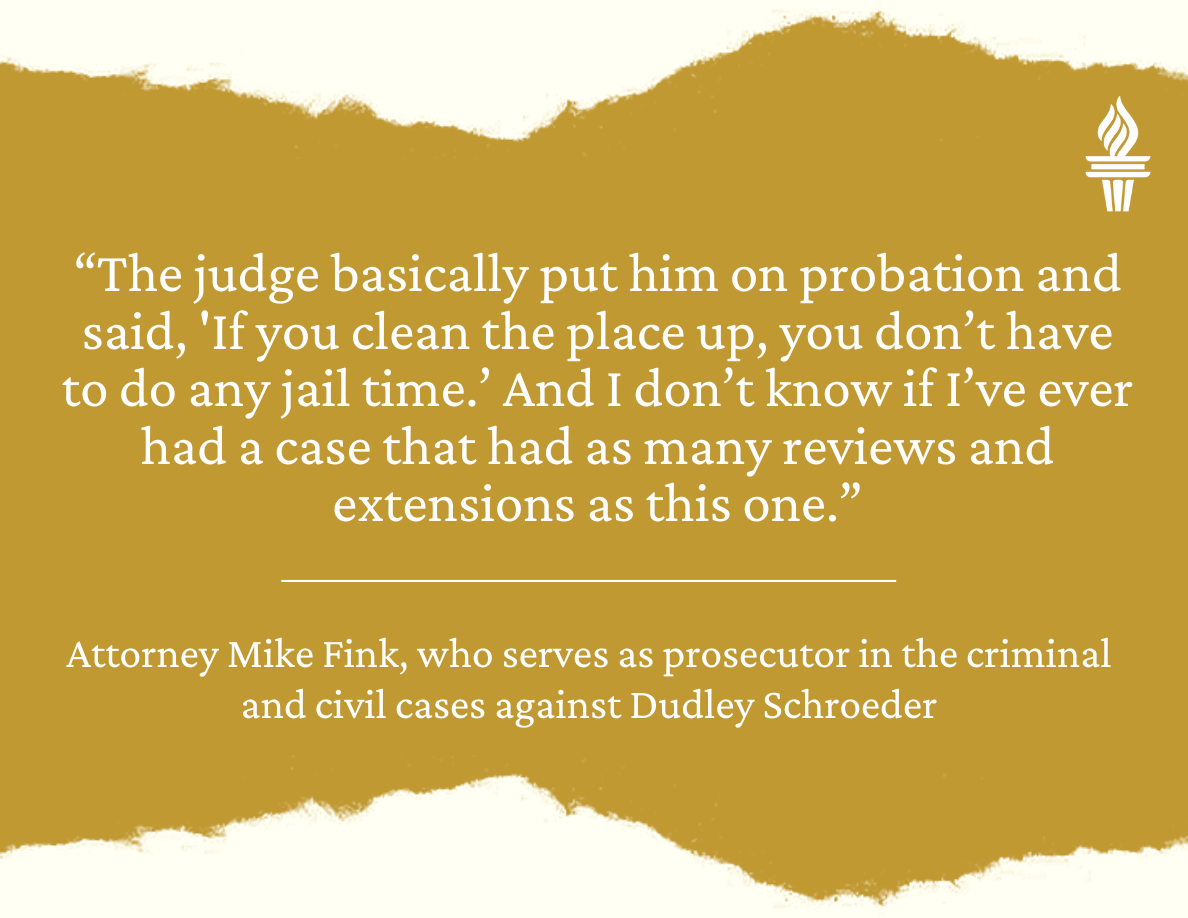
As a result of the code crackdown, Schroeder said he now requires customers to remove their faulty transmissions themselves and bring only the mechanism and not the entire vehicle to his shop for repairs. He said he has lost business from individuals and government agencies following disputes over the condition of his shop.
Schroeder said he also mainly works on older-model vehicles, so he needs to maintain a stockpile of used transmissions to pull from on his property. He said car and truck manufacturers no longer make the transmissions or new replacement parts for older models.
The entire experience of trying to manage his health, maintain his family's farm and run the transmission business while dealing with the court cases has left him physically and emotionally drained, Schroeder said.
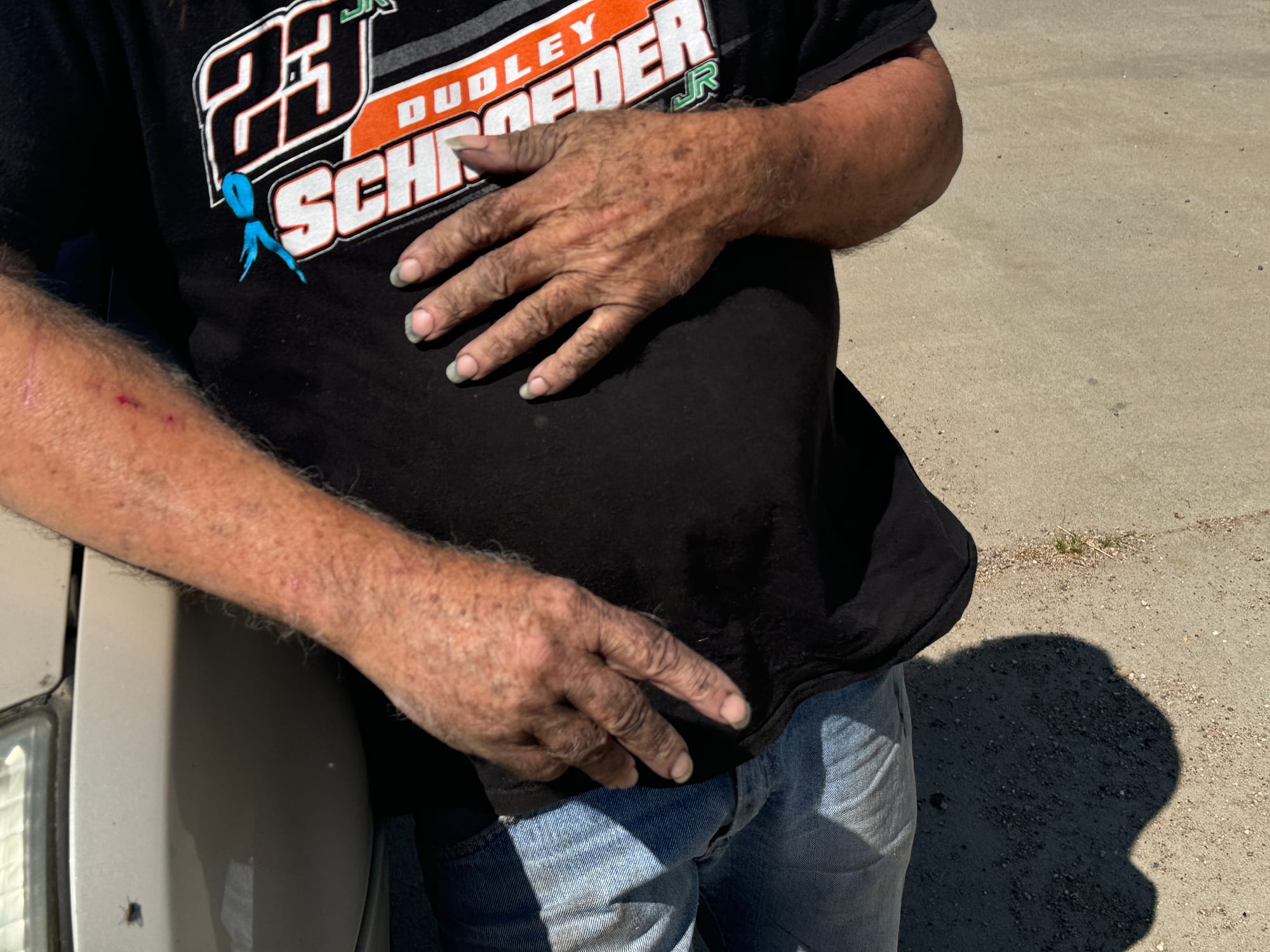
"It’s not so much that I’m angry, but at my age, why do I have to worry every day if somebody is going to be serving me court papers or whatever?" he asked. "I’m too old to be worried about minor things like that. But I guess it’s not minor here any more."
After Schroeder served two days in jail in late 2023, he returned to court and the judge held off on further jail time but ruled that the case will remain open through December 2024. The remaining 28 days of his formal sentence could be imposed if he fails to get the property cleaned up by year's end.
"They put a 65-year-old man in jail for two days, to do what? I don't understand what that did?" Marci Schroeder said. "If you want to do something, fine him or help him out. And now they're going to threaten him with the other 28 days in jail? You'd have to laugh if it wasn't so damn serious."

Armour mayor: Junk hurts entire town
In an interview with News Watch, Armour Mayor Travis Sparks said he did not want to discuss the specifics of the ongoing legal cases involving Schroeder. But Sparks, who has served two intermittent terms as mayor, said town leaders have tried for more than a decade to encourage Schroeder to clean up the property, both in verbal conversations and through written warnings.
"It's been going on for at least 15 years," Sparks said. "He didn't want to work with us, so we ended up going the legal route."
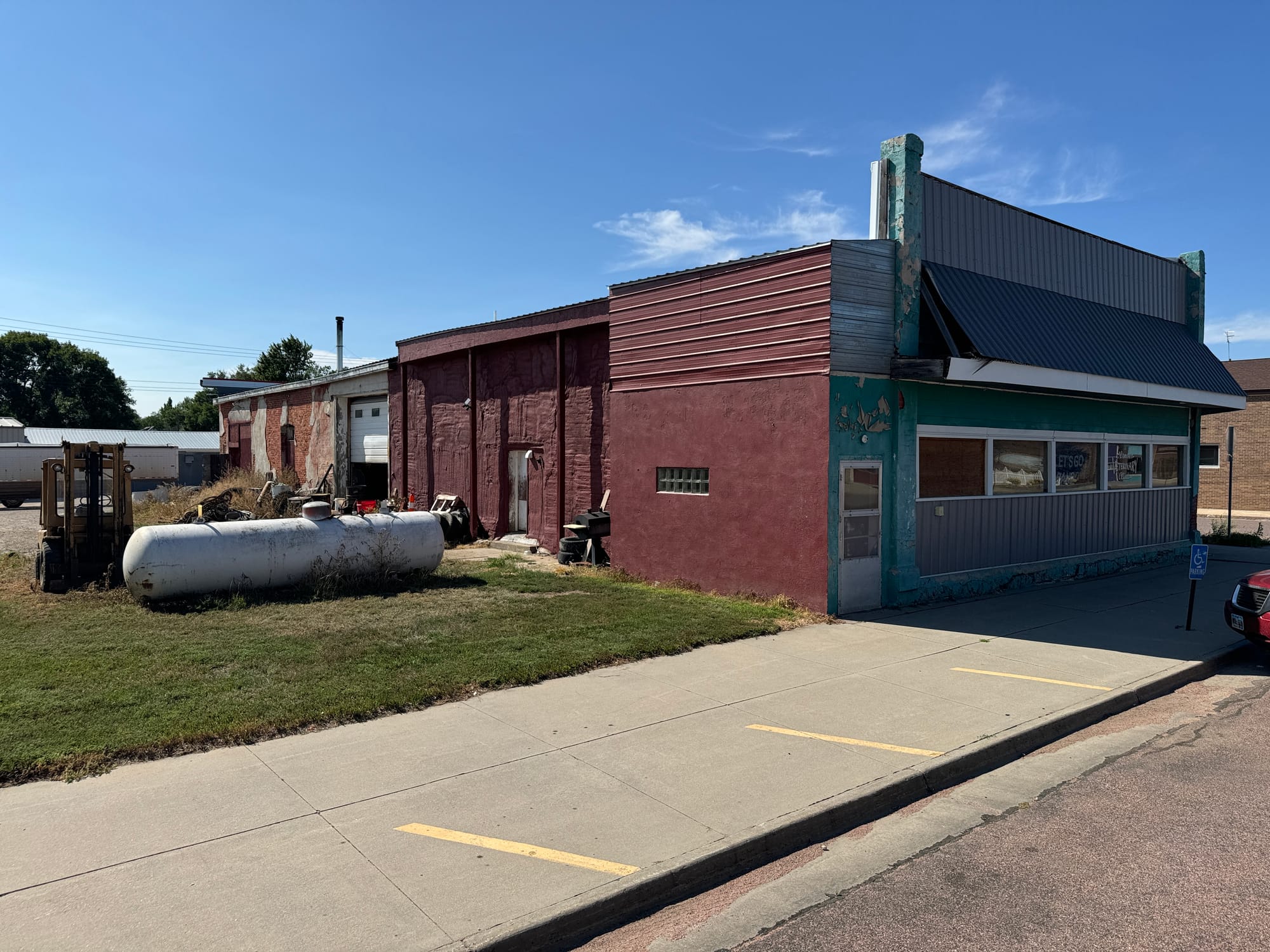
Sparks said Schroeder is not the only resident of Armour who has been warned over code enforcement violations. He said the city of about 700 people contracts with an independent code enforcement firm to uphold city ordinances because the city wants to portray a positive image to both existing and potential residents or employers.
During a visit in early August, a News Watch reporter noticed one downtown building with peeling paint and debris stored outside almost directly across the street from Armour City Hall. Meanwhile, a body shop on U.S. 281 nearby had several vehicles parked out front, including some with obvious body damage, and also had tires and other debris piled along a side wall and clearly visible to the public.
"It comes down to aesthetics," Sparks said. "When people drive through town and see dilapidated buildings or properties with junk all over them, they’re not going to want to stop or do any business in the town."
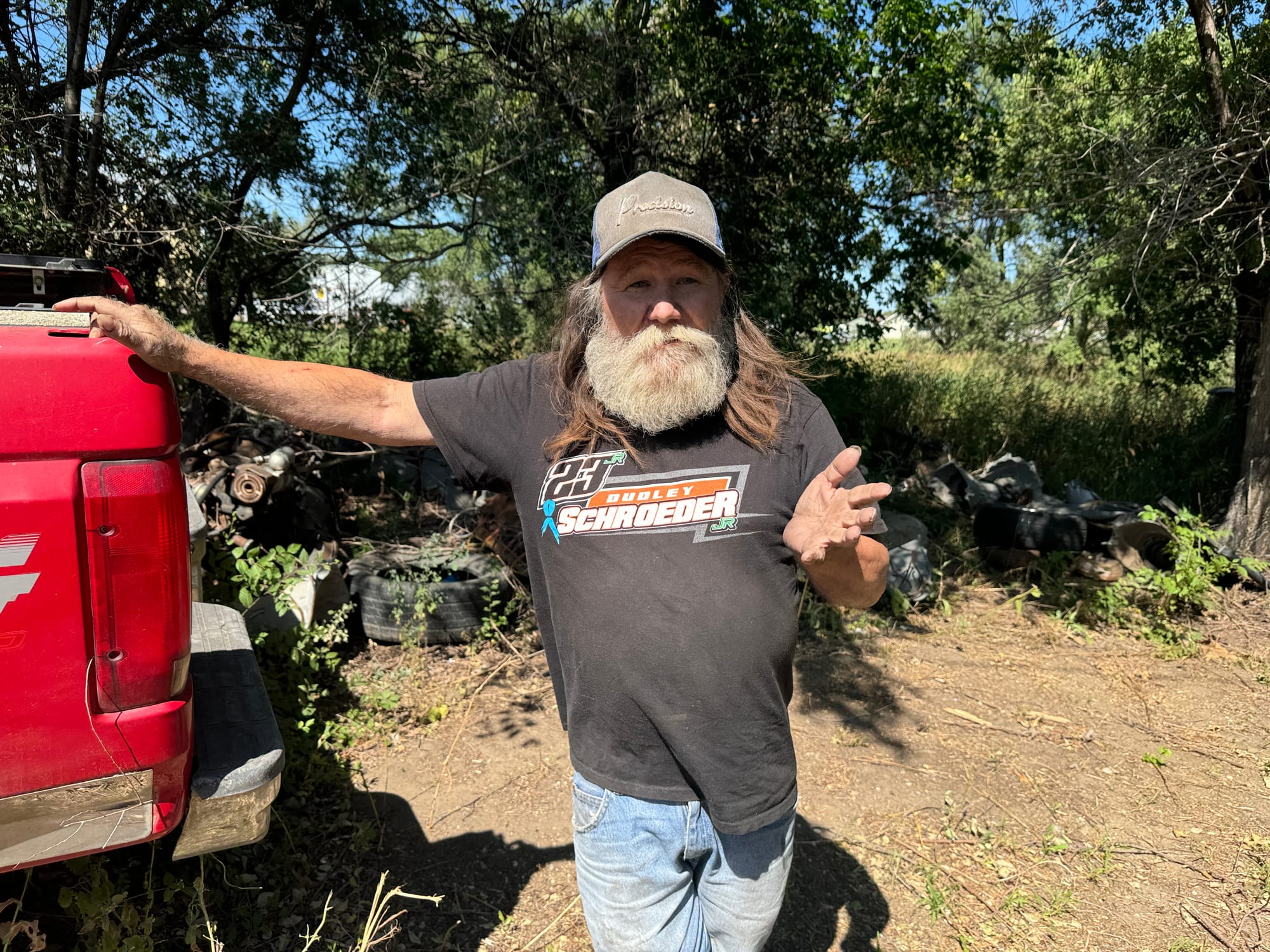
The mayor said he rejects claims Schroeder has made publicly that the city is trying to force him off his property or that it wants to take ownership of the land. The only goal of the enforcement and legal actions is to bring the property into compliance with local codes, Sparks said.
"The courts have ruled in our favor and it’s up to Dudley to get the work done," he said. "If he gets the work done, it will be signed off on and we’ll be good to go."
Using jail time as a 'hammer'
Fink, who serves as a contract city attorney for a handful of central South Dakota cities and is the state's attorney in McCook County, said he has handled code enforcement legal issues for years. He said some municipalities take a hard line on code enforcement while others are more lax. He put Armour roughly in the middle of that spectrum.

His typical approach to code enforcement cases is not to levy fines but rather to take scofflaws into court and pursue legal consequences up to and including jail time. The "hammer" of a potential jail sentence, Fink said, is almost always enough to get defendants to comply and clean up their properties, which is the end goal of the process.
Fink said both he and the judge were not persuaded by Schroeder's apparent attempts to "mask" the debris at the property, including construction of what Fink called a "half-assed" fence that partly toppled soon after being installed.
"It was an extremely ramshackle fence that was put up. And the first time the wind blew, it was falling over on itself, so there was really no effort there," he said.
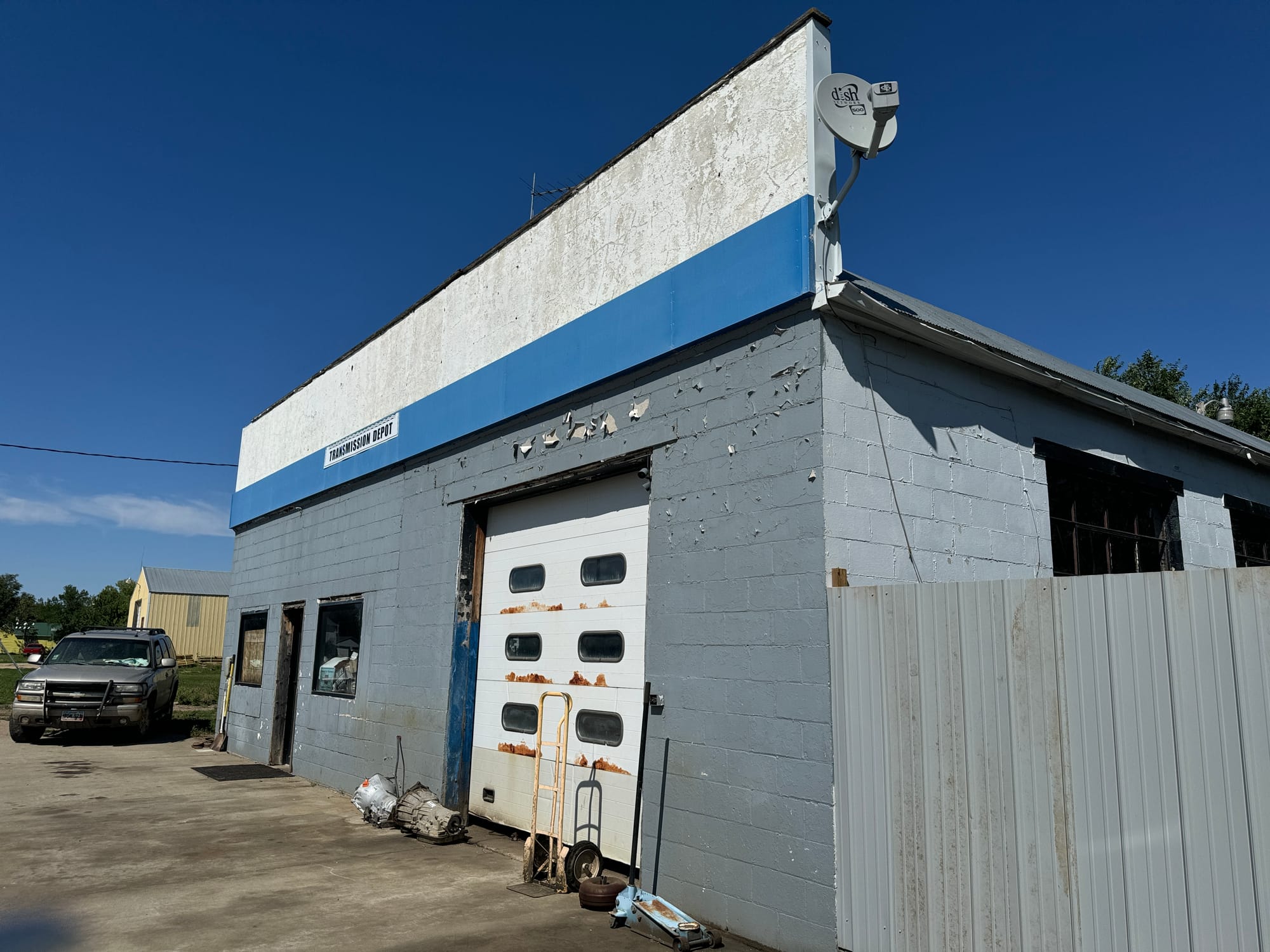
As far as Schroeder's medical and financial challenges, Fink said those factors do not play into a charging decision but can affect how he or a judge proceeds at sentencing. Ultimately, however, all defendants should be treated equally and with the same expectations for compliance, he said.
"There are a lot of people in Armour who have medical issues and who have had tough things happen to them in their lifetime, and it doesn't lead them to commit a crime," Fink said. "There are many people in Armour who have it just as bad as Dudley but who have figured out how to get the assistance of others to make (their properties) look nice."
Code enforcer reported progress
That is the ultimate goal, said Joel Johnson, whose company, Code Enforcement Specialists of Burke, contracts with Armour and about 80 other South Dakota cities to perform code enforcement inspections.
Johnson said he revisited Schroeder’s property in late July and reported that some progress had been made.
“Finally, the family got together and it looks like they have done a couple things,” Johnson said. “It looks a lot better because in the past it was just a disaster.”
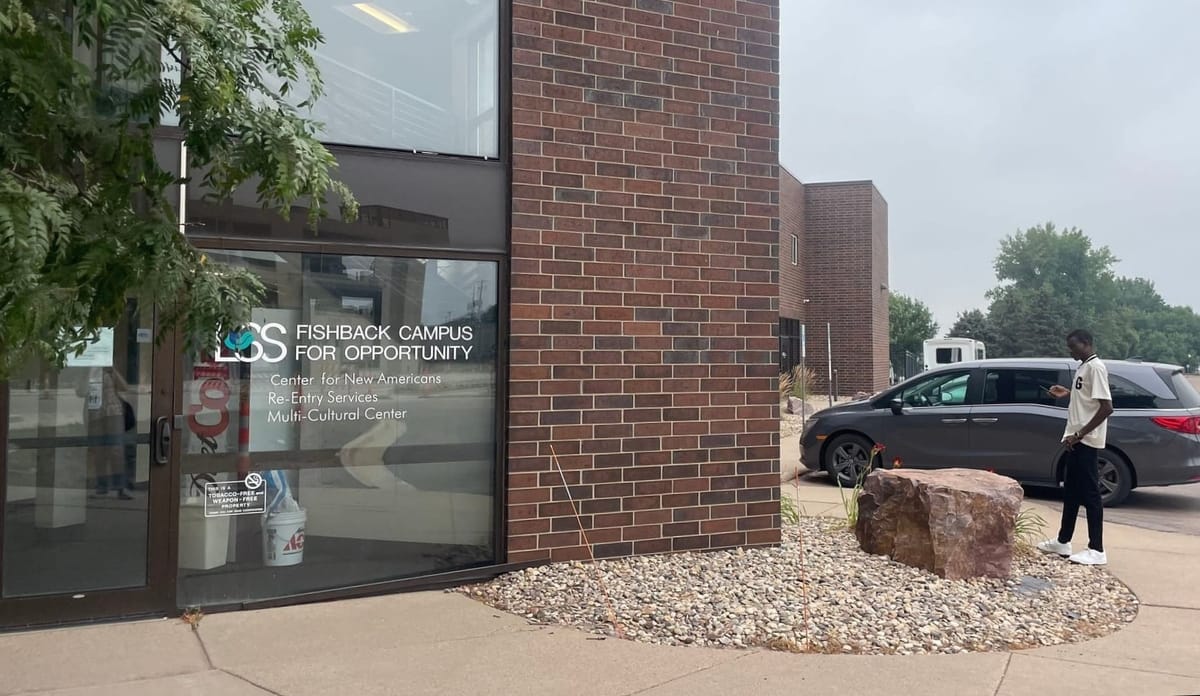
Johnson said he mostly performs his code enforcement work without incident, but he noted that some property owners get heated when they know he is there to examine whether their properties meet local ordinance.
“I don’t mean to cast aspersions on anybody. But quite frankly there is some mental stuff that goes on in the majority of these cases, and people need some help,” he said.
Not sure what comes next
Fink said the civil order he filed against Schroeder is pending as he, the city and the code enforcement officer monitor Schroeder's progress in getting the property up to code.
Comparing photos from 2022 to the transmission shop now, it is clear that Schroeder has taken several steps to clean up.
He found a metal broker to haul away 50-gallon drums that contained scrap metal. He removed several cars and trucks from the front of the property. And he secured the metal fence with wood and screws to block the rear of his property from public view.
Schroeder said he doesn't consider himself a "hoarder," though he acknowledges that he is somewhat unorganized and doesn't like to throw away things that can be used or reused.
The rear of his property remains messy with cars, trucks and snowmobiles as well as car parts and other debris strewn about. And while it isn't part of the court cases, the inside of his shop is cramped tight with auto parts, papers and other materials stacked on floors, shelving and a desk. Schroeder said the messiness resulted from moving things from outside storage into the shop office.

And yet, he's hopeful – though uncertain – if he has done enough to keep the city, courts and code enforcement officer at bay. Schroeder said he has never felt completely comfortable with what he is required to do to stay out of court and out of jail.
"How do I know when it's over or it's not over?" he said. "Do I just walk around on pins and needles every day and can't sleep at night because I'm wondering what is next?"
Despite the uncertainty, Schroeder's plan is to work a couple more years until he qualifies for Social Security and then hang up his transmission tools and close the shop. Meanwhile, he's sure of only one thing: "I do not want to go back to jail."
This story was produced by South Dakota News Watch, an independent, nonprofit news organization. Read more in-depth stories at sdnewswatch.org and sign up for an email every few days to get stories as soon as they're published. Contact content director/ investigative reporter Bart Pfankuch at bart.pfankuch@sdnewswatch.org.

